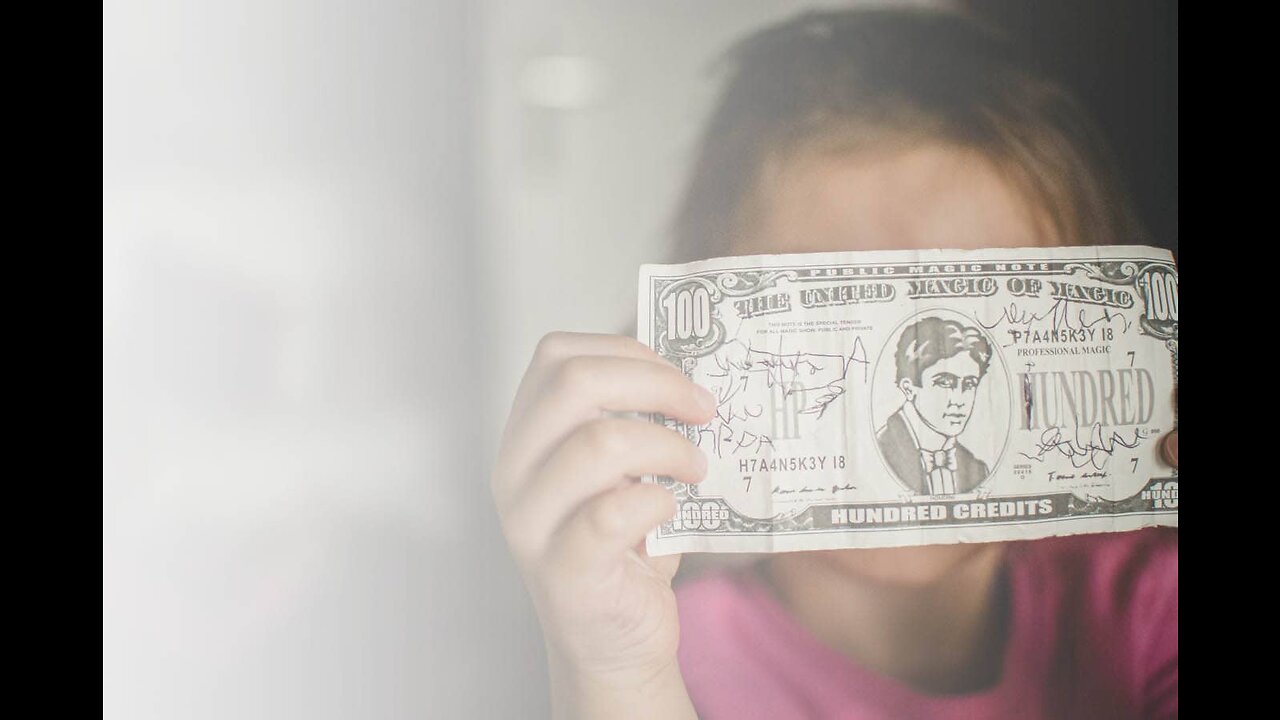Premium Only Content

Illegal trade in AI child sex abuse images exposed - BBC
🥇 Bonuses, Promotions, and the Best Online Casino Reviews you can trust: https://bit.ly/BigFunCasinoGame
Illegal trade in AI child sex abuse images exposed - BBC
By Angus Crawford and Tony Smith BBC News Paedophiles are using artificial intelligence (AI) technology to create and sell life-like child sexual abuse material, the BBC has found. Some are accessing the images by paying subscriptions to accounts on mainstream content-sharing sites such as Patreon. Patreon said it had a "zero tolerance" policy about such imagery on its site. The National Police Chief's Council said it was "outrageous" that some platforms were making "huge profits" but not taking "moral responsibility". And GCHQ, the government's intelligence, security and cyber agency, has responded to the report, saying: "Child sexual abuse offenders adopt all technologies and some believe the future of child sexual abuse material lies in AI-generated content." The makers of the abuse images are using AI software called Stable Diffusion, which was intended to generate images for use in art or graphic design. AI enables computers to perform tasks that typically require human intelligence. The Stable Diffusion software allows users to describe, using word prompts, any image they want - and the program then creates the image. But the BBC has found it is being used to create life-like images of child sexual abuse, including of the rape of babies and toddlers. UK police online child abuse investigation teams say they are already encountering such content. Image caption, Journalist Octavia Sheepshanks says there has been a "huge flood" of AI-generated images Freelance researcher and journalist Octavia Sheepshanks has been investigating this issue for several months. She contacted the BBC via children's charity the NSPCC in order to highlight her findings. "Since AI-generated images became possible, there has been this huge flood… it's not just very young girls, they're [paedophiles] talking about toddlers," she said. A "pseudo image" generated by a computer which depicts child sexual abuse is treated the same as a real image and is illegal to possess, publish or transfer in the UK. The National Police Chiefs' Council (NPCC) lead on child safeguarding, Ian Critchley, said it would be wrong to argue that because no real children were depicted in such "synthetic" images - that no-one was harmed. He warned that a paedophile could, "move along that scale of offending from thought, to synthetic, to actually the abuse of a live child". Abuse images are being shared via a three-stage process: Paedophiles make images using AI software They promote pictures on platforms such as Japanese picture sharing website called Pixiv These accounts have links to direct customers to their more explicit images, which people can pay to view on accounts on sites such as Patreon Some of the image creators are posting on a popular Japanese social media platform called Pixiv, which is mainly used by artists sharing manga and anime. But because the site is hosted in Japan, where sharing sexualised cartoons and drawings of children is not illegal, the creators use it to promote their work in groups and via hashtags - which indexes topics using key words. A spokesman for Pixiv said it placed immense emphasis on addressing this issue. It said on 31 May it had banned all photo-realistic depictions of sexual content involving minors. The company said it had proactively strengthened its monitoring systems and was allocating substantial resources to counteract problems related to developments in AI. Ms Sheepshanks told the BBC her research suggested users appeared to be making child abuse images on an industrial scale. "The volume is just huge, so people [creators] will say 'we aim to do at least 1,000 images a month,'" she said. Comments by users on individual images in Pixiv make it clear they have a sexual interest in children, with some users even offering to provide images and videos of abuse that were not AI-generated. Ms Sheepshanks has been monitoring some of the groups on the platform. "Within those groups, which will have 100 members, people will be sharing, 'Oh here's a link to real stuff,' she says. "The most awful stuff, I didn't even know words [the descriptions] like that existed." Different pricing levels Many of the accounts on Pixiv include links in their biographies directing people to what they call their "uncensored content" on the US-based content sharing site Patreon. P...
-
 1:22:22
1:22:22
Game On!
14 hours ago $6.79 earnedRussell Wilson MVP? TNF Steelers vs Browns Game of the Year!
58.9K -
 13:57
13:57
This Bahamian Gyal
15 hours agoSo, now MIKA and JOE want to work with HITLER? Sunny Hostin was right!
36.1K36 -
 59:38
59:38
The Tom Renz Show
17 hours ago"MAGA & Unity With Pastor Bernadette Smith"
22.7K2 -
 2:12
2:12
Memology 101
14 hours ago $3.22 earnedTYT's Cenk Uygur DESTROYS deluded self-proclaimed election Nostradamus over FAILED prediction "keys"
13.7K13 -
 2:11
2:11
BIG NEM
15 hours agoMeet the NATIVE Tribe Of The Balkans Nobody Talks About
28K3 -
 2:40:31
2:40:31
Fresh and Fit
13 hours agoAre You Smarter Than A 5th Grader? After Hours
213K84 -
 4:07:42
4:07:42
Alex Zedra
19 hours agoLIVE! Scary Games with the Girls
177K6 -
 22:35
22:35
DeVory Darkins
15 hours ago $29.67 earned"Don't Call Me Stupid!" Election Guru HUMILIATED by Left Wing Host
80.4K80 -
 1:41:14
1:41:14
Megyn Kelly
16 hours agoMace's Quest to Protect Women's Spaces, and RFK vs. Media and Swamp, w/ Casey Means and Vinay Prasad
94.7K120 -
 5:08:25
5:08:25
Drew Hernandez
14 hours agoLAKEN RILEY'S KILLER CONVICTED & GIVEN LIFE IN PRISON
72.2K95